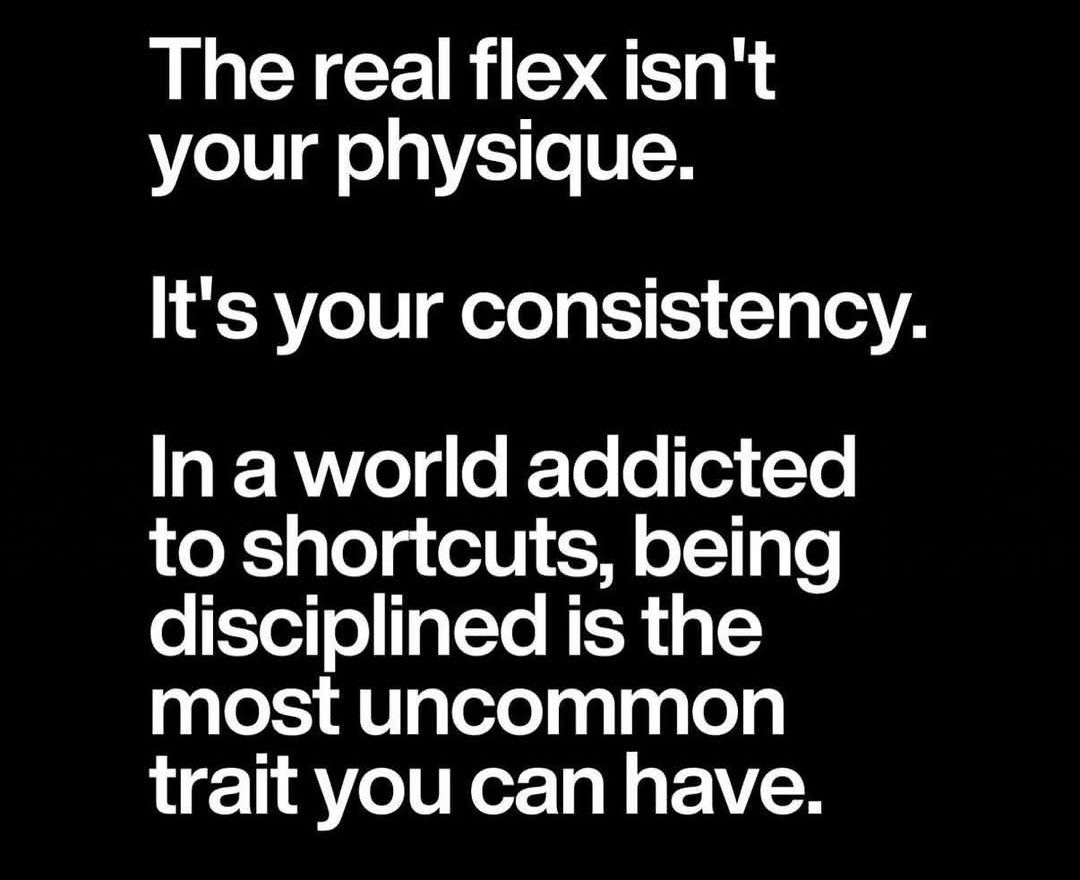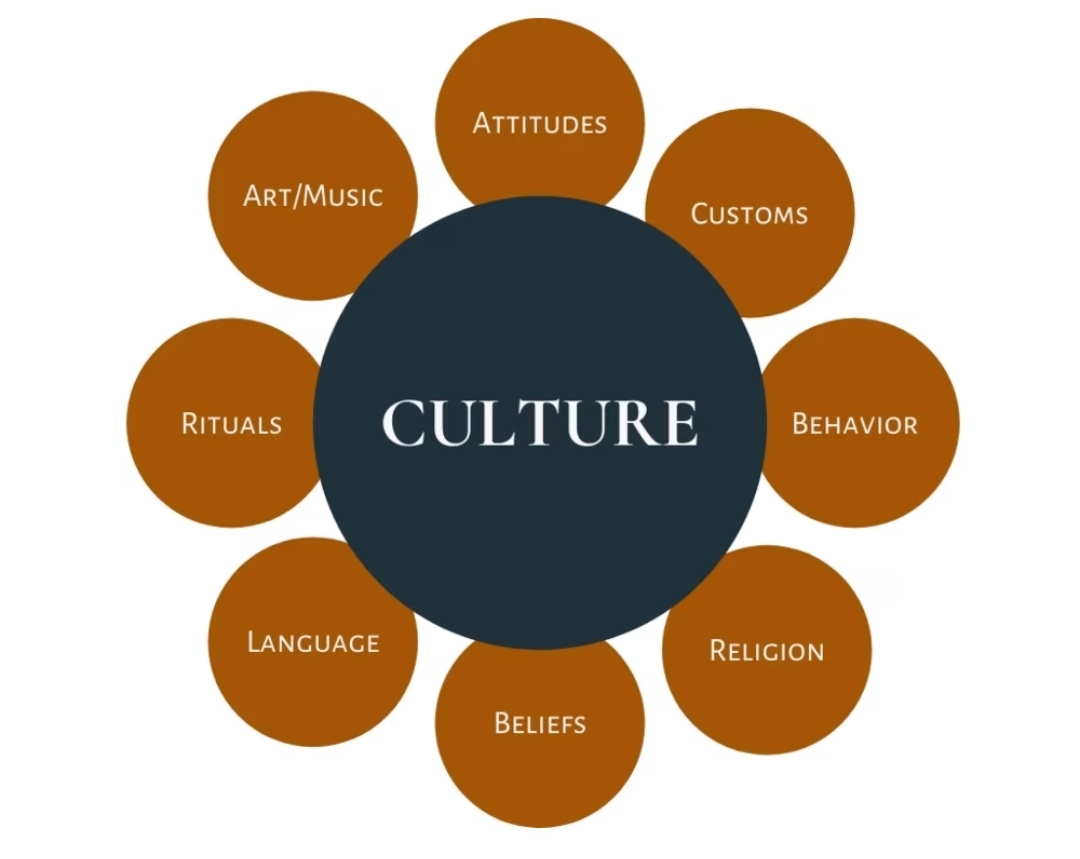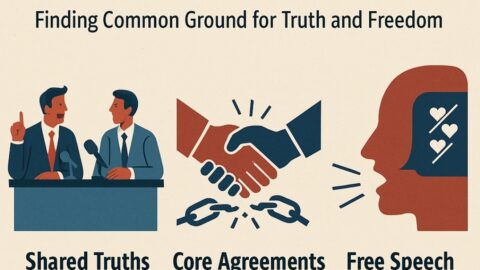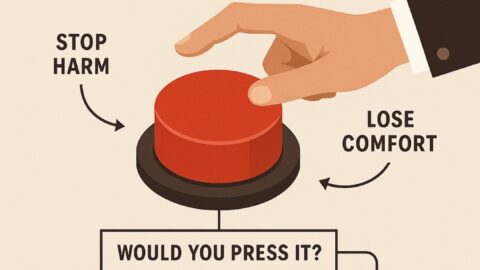Stephen Covey’s The 7 Habits of Highly Effective People identifies a significant cultural shift in American society—one that moved from the Character Ethic to the Personality Ethic—and argues that this shift has deeply influenced how individuals and generations approach success, relationships, and personal growth.
Character Ethic vs. Personality Ethic
Character Ethic (Pre-World War I)
- Rooted in principles like integrity, humility, courage, patience, justice, and honesty.
- Success was seen as a product of inner transformation—becoming a person of strong moral character.
- Values emphasized long-term growth, discipline, and contribution to the community.
- The focus was on who you are rather than how you appear.
Example: The writings of Benjamin Franklin and the values of early American pioneers stressed virtues such as hard work, self-discipline, and moral responsibility.
Personality Ethic (Post-World War I)
- A shift towards image, techniques, and quick fixes for achieving success.
- Success became associated with external appearance, charm, and surface-level skills rather than inner moral strength.
- Emphasis on short-term results, clever tactics, and public perception over deep, internal transformation.
- Often relies on how you present yourself rather than who you are.
Example: Self-help books in the 20th century increasingly focused on “winning friends and influencing people,” charisma, or manipulation of image rather than long-term character development.

The Impact of the Shift
Superficial Solutions: People began searching for quick fixes and instant gratification rather than enduring change.
Emphasis on Techniques Over Integrity: Techniques like smiling, using certain phrases, or appearing confident replaced deeper values like honesty, resilience, or accountability.
Fragile Relationships: Trust and genuine human connection weakened as interactions became transactional rather than principled.
Generational Influence: Over time, newer generations inherited a mindset focused on “what works right now” instead of “what’s right in the long run.”
Why Does Covey Advocate a Return to the Character Ethic?
Covey believed that lasting success and effectiveness cannot be built on personality or techniques alone. Techniques may bring temporary results, but without a foundation of strong character, those results are unsustainable.
- Principle-Centered Living: Aligning actions with core, unchanging principles creates consistency, trust, and long-term success.
- Authenticity Over Image: True effectiveness comes from who you are when no one is watching, not just how you present yourself publicly.
- Enduring Relationships: Trust and deep connections require sincerity, honesty, and integrity—not surface-level charm.
Modern Implications
Today, the influence of the Personality Ethic is even more pronounced with social media, where image and perception often overshadow authenticity and inner growth. Many people are chasing validation and short-term success instead of building lasting habits rooted in character.
Covey’s call to return to the Character Ethic is more relevant than ever. His message reminds us that true change begins internally—with habits, discipline, and integrity—before it can manifest externally in our relationships, careers, and communities.
This shift isn’t just about individual growth; it’s about creating a society that values depth over superficial charm, and authenticity over temporary appeal.
People who live by the Character Ethic are increasingly rare in today’s world dominated by quick fixes, image management, and surface-level success driven by the Personality Ethic. This scarcity makes individuals who embody the Character Ethic stand out as diamonds in the rough.
Let’s explore the advantages and disadvantages of being part of this minority.
Advantages of Being a Person of Character Ethic
Trust and Credibility
- People with strong character are seen as reliable and trustworthy.
- Their word holds weight because their actions consistently align with their principles.
- Trust becomes a currency that opens doors to leadership roles, partnerships, and deeper relationships.
Example: A person who consistently follows through on commitments is seen as dependable and earns loyalty from others.
Inner Peace and Resilience
- Character-oriented individuals have a strong internal compass that guides their decisions.
- They don’t need external validation to feel valuable, which makes them resilient to criticism or failure.
- Their sense of integrity provides inner peace and self-respect.
Example: Someone who refuses to cut corners, even when no one is watching, sleeps peacefully knowing they upheld their values.
Long-Term Success
- Their focus on principles over shortcuts means their success is often sustainable and built on solid foundations.
- They invest in long-term relationships, skills, and reputation rather than chasing temporary wins.
Example: An honest business owner might grow slower than a competitor who engages in unethical practices, but their business will be more resilient and enduring.
Authentic Relationships
- They attract like-minded people who value genuine connections and mutual respect.
- Their relationships are built on trust, vulnerability, and shared values rather than manipulation or convenience.
Example: True friendships and loyal professional connections are the norm, not the exception, for people of character.
Legacy and Influence
- They leave behind a positive legacy that inspires others.
- Their influence often extends beyond their lifetime through the example they set.
Example: Think of historical figures like Abraham Lincoln or Nelson Mandela, whose legacies are built on unwavering character.
Disadvantages of Being a Person of Character Ethic
Isolation and Feeling Like an Outsider
- Being in the minority can lead to feelings of loneliness and alienation.
- Their commitment to principles might set them apart in environments where compromise and shortcuts are the norm.
Example: In a corporate setting, an employee who refuses to participate in unethical practices might be excluded from inner circles.
Slower Progress in Certain Environments
- In competitive, high-pressure environments, individuals focused on integrity and principles may lose out to those who cut corners or play politics.
- Success might come more slowly because they refuse to compromise their values.
Example: A salesperson who refuses to lie about a product’s capabilities might lose short-term sales compared to a more manipulative colleague.
Vulnerability to Exploitation
- Others might take advantage of their honesty, kindness, or reliability.
- They might end up carrying more responsibilities because they’re seen as dependable.
Example: In a team setting, someone who always steps up might get overloaded while others slack off.
Emotional and Mental Strain
- Upholding principles in a world that often rewards shortcuts can be emotionally exhausting.
- Constantly swimming against the current requires immense mental fortitude and patience.
Example: Standing up for what’s right in the face of opposition or ridicule can take a toll on mental health.
Delayed Recognition and Rewards
- Their contributions might not always be immediately recognized or appreciated.
- In a world that often celebrates results over methods, their hard work may go unnoticed for a long time.
Example: An honest worker may go years without promotion while someone less ethical advances quickly.
The Balancing Act
Being a person of Character Ethic in a world dominated by the Personality Ethic is both a burden and a privilege.
- The burden lies in the loneliness, slower progress, and emotional toll of standing firm in one’s values.
- The privilege lies in the trust earned, the authentic relationships built, and the enduring impact left behind.
The diamond metaphor is fitting—not just because of rarity, but because diamonds are formed under immense pressure and time. Similarly, people of character become who they are through consistent effort, struggle, and unwavering dedication to principles.
While the road may be difficult, the rewards of living by the Character Ethic—peace of mind, enduring trust, and meaningful relationships—are worth far more than the fleeting gains of surface-level success.







